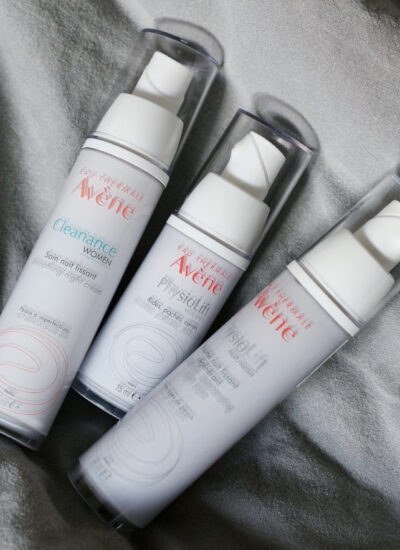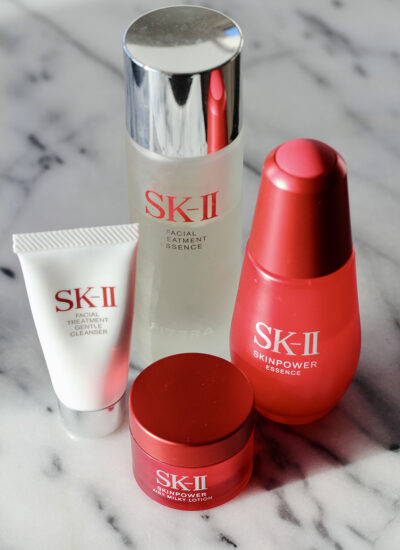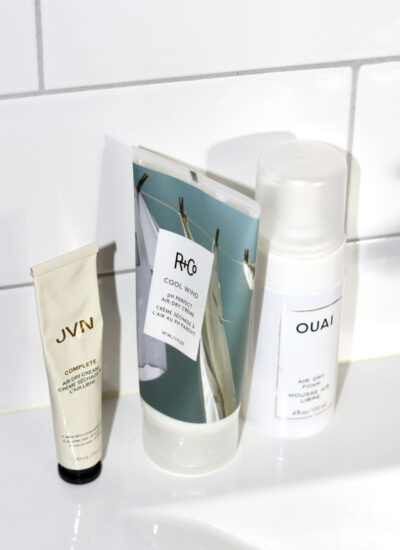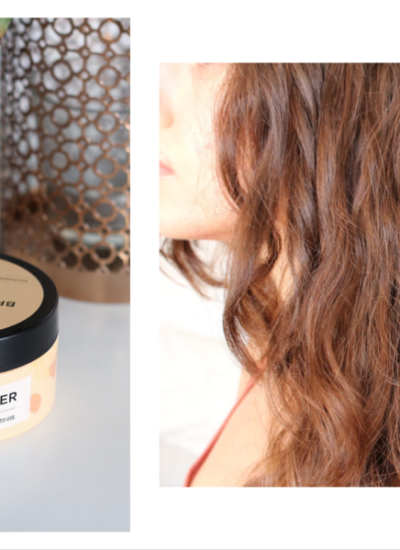
Ever since I cut off about 30 cm to refresh my hair back in 2016, I’ve been on a hair growth journey. But in contrast to the bird’s nest I was rocking (hence why the chop in the first place) I decided to do whatever in my power to grow it out looking and feeling healthy. Because getting long hair is easy. But keeping up the quality of virgin hair is not.
Myth #1: “Don’t trim your hair” and “Trimming makes hair grow faster”
Two opposite statements that you’ll come across when searching for ways to grow your hair out faster. The first one, about not trimming your hair, is probably the most annoying statement about this subject there is. No professional hairdresser agrees with this even.
It’s annoying because, yes, this will let your hair grow out faster, but it will result in you having to do a big chop later. I’ve fallen for this in the past. I get where this logic stems from, but it doesn’t take into account that, 1) you don’t just lose your hair from the root but from the ends too and, 2) thin hair is much more prone to damage than thicker strands. Not to mention, as your hair gets longer it gets older and thus much more breakage-prone at the ends.
I’m passionate about this because I’ve had to cut off at least 10-30 cm and starting over many times because I stubbornly only went to the hairdresser to get it trimmed once a year! Yes, my hair was long and it got to long much faster. But it was a bird’s nest, difficult to brush, and didn’t look healthy. Trimming does make the process of growth feel and take a lot longer, but if you want soft, shiny, and long hair, it’s worth it.
The other statement, people who say that you should do trims to grow out your hair, with the belief that it grows magically faster, needs correction.
Your hair grows, either way, you can’t trim or not cut it to make it “grow faster”. It doesn’t grow from the ends, you know! How fast depends on genetics, internal factors, season, and scalp health.
THE TAKE OUT
If your hair strands are thick and more resilient to heat, you don’t need to trim as often. But you still need to if you want healthy, soft, and manageable hair. If you have thin and brittle hair, the only way to get to that long and, most importantly, healthy hair is if you do regular trims every third month or so. Do it yourself at home or at the hairdresser. Ask for a “dusting” instead of a trim, and your hairdresser should only attack the damaged parts.
Myth #2: Washing your hair once a week for hair growth
While washing your hair every day isn’t ideal, neither is waiting 7 days to wash it… From a hair growth perspective. Yes, your hair and scalp benefit from the sebum coating, but you also have to take into account that we don’t live in the cleanest environment. Your hair collects a lot of dust, from your pillow to air pollution and whatnot. If you on top of that use hair products and rely on dry shampoo, then that’s just adding too much grime to the scalp at the end of the week. This, in turn, can cause the hair pores to clog up, eventually ending with hair fallouts! Not to mention, if your dirty hair touches your face it may even lead to acne.
Hair grows best in a clean environment. That doesn’t mean squeaky clean. It just means that you need to make sure you don’t wait too long between washes. If your scalp starts to itch or become super greasy, then you’ve waited too long.
I will say this though, that it definitely depends on your type of hair, where you live, your lifestyle, and how much styling products you use. For example, if you’re someone who exercises 3-7 times a week, you’re better off washing your hair every 2-3 days than washing once a week and overusing dry shampoo in the process.
Switching to an SLS-free shampoo can help you wash more frequently without drying out and irritating your scalp. Because we don’t want that either. If you do use styling products or live in a very polluted area, adding a clarifying shampoo 1-4 times a month to your washing routine is advised.
THE TAKE OUT
How often you should wash your hair depends on several factors. Don’t try to extend the days between your wash days before analyzing your hair and situation. Most people do fine washing every 3-4 days.
Myth #3: Oil massages for thicker and longer hair
Okay, this is more of an unpopular opinion, and I might be the first one to say this… Yes, there are some oils that have anecdotal evidence of speeding up hair growth and give fuller hair. But it’s still unsure whether it’s the oil or the 5-minute message that’s doing the trick. For instance, I haven’t used oil on my scalp and I still managed to grow my hair almost one inch within a month just from doing the inversion method.
My opinion pretty much stems from the above statement, that hair grows quicker in a healthy and clean environment. On another note, oil masks may help condition hair, which in turn makes it stronger and more resilient against breakage. Less breakage = less loss = longer lengths.
But remember that I only pointed out that, from a hair growth perspective, it doesn’t make sense to clog up your pores.
However, just like the other two myths, it all comes down to one’s hair texture and thickness of strands. Of course, I’m speaking from my own experience. Oil can be very thugging, and if you have thin strands, you might do more damage by massaging with oil instead of just your fingers. So I personally reserve oil on the lengths of my hair instead of my scalp as I was experiencing unnecessary hair fallouts.
THE TAKE OUT
Not everyone benefits from oil massages. If you notice that your hair is falling out more it could be because of brittle follicles or thin hair. And massaging with oil won’t magically make hair and follicles stronger. If you are going to use oils on your scalp, be sure to wash it off thoroughly the same day. Otherwise, what’s remaining, may clog the pores and eventually stunt growth that may even result in hair loss.
Myth #4: Silicones makes your hair dry and damaged
Silicones may initially be just for show, to give your hair a false feeling of softness and shine. But they do also provide some protection by mending ends and keeping your hair soft and less frizzy. Which will give you fewer knots to detangle but also make the brushing process easier with fewer pull-outs.
Silicones get a bad rap because they might build up, blocking moisture from getting into the hair, which can cause hair to become dry and brittle if not removed. And to remove and avoid build-up you need to wash with a clarifying shampoo. However, not all silicones stack up and some are even water-soluble. And most silicones can be removed with more gentle surfactants like sodium laureth sulfate (SLES) and cocamidopropyl betaine (here’s a list). There’s a bunch of gentle clarifying shampoos on the market that removes build-up without stripping the hair. And depending on the silicone, your sulfate-free shampoo might do the trick.
The fact is that some hair types benefit more from using silicones than avoiding them. If your hair strands are thin and breakage-prone, silicones help to protect and prevent future damage from brushing and heat tools. To say that all silicones are bad and should be avoided for healthy hair growth for everyone is just not true.
THE TAKE OUT
Now, everyone’s hair type is different. Some hair types don’t do well with silicones. For others, it’s helpful and protects the hair from damage. As always, you have to consider your hair type, environment, and the product itself. Not all products with silicones are created equal. If you are using styling products, no matter if it’s conventional or natural, you should be doing a clarifying treatment at least once a month.
Myth #5: Natural haircare is best for growing hair long
I don’t know about you. But a lot of people in the long hair community seem to all lean towards using natural and organic hair care. As if that’s what magically helps their hair grow longer and thicker. While this may be the case for some, I haven’t found better evidence than it being similar to eating a bad diet to suddenly switching to a better one. You will, without a doubt, notice a difference.
From my observations, own experience, and research, it doesn’t really matter if your hair care is “clean” or not. What matters the most is that it actually cleanses your scalp and doesn’t irritate it. Natural products are known to have a bit more extracts, as well as known essential oils that research suggests actually helps with hair growth and hair thickness. The milder formulations may also help keep a calm and soothed environment. However, many natural products are heavy on oils and butters, which not all hair textures can handle. And just like silicones, these heavy lipids may build up and clog follicles, if not removed properly.
I have not been able to find any correlation that natural would somehow be better for hair growth. And nowadays, professional haircare and even conventional drugstore, are more or less SLS-free and do include nourishing ingredients.
THE TAKE OUT
Find hair care that works for your hair, it can be natural, but it doesn’t have to. If you want longer and thicker hair, please don’t listen to absolutes. Check your hair type, texture, environment, and lifestyle, and use products accordingly. It doesn’t matter if the brand you use is all-natural or not, make sure it cleanses without stripping and works with your hair type and environment.
Do What Works For You
Such an overused statement, but it’s true. I’ve watched enough videos and read through enough articles to realize that hair growth and thickness are more genetics or an internal issue than what most shampoos can fix. Take care of your scalp and your hair will grow. How fast and thick depends on your genetic makeup most of the time.
But have in mind that people with long and thick healthy hair on YouTube and Instagram have the spotlight because they are the anomaly. Not to forget that they will show you what they want you to see. A person who hasn’t cut their hair in a year might have long hair but doesn’t necessarily have healthy hair. Rarely do people show or talk about all their split ends. And if they deny having any, their hair strands may be thick and resilient, so their advice shouldn’t necessarily apply to everyone.
Be critical and seek out people with the same hair quality as you.







